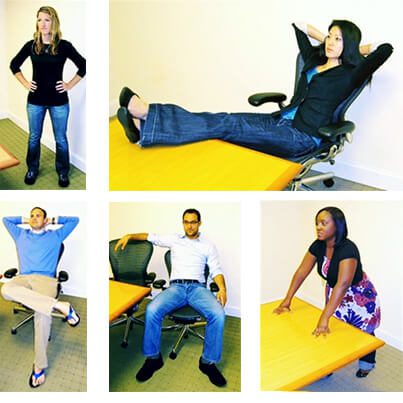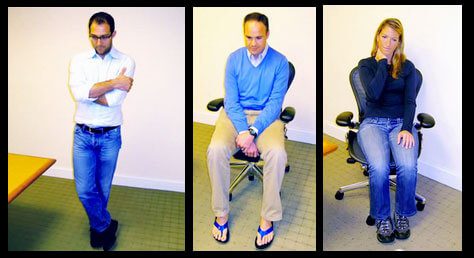Impostor Syndrome True Story…
“Just thinking about it makes me want to throw up.” This from a woman who, from all outward appearances, really had it together – poised, self-confident, at the top of her career as CEO of a major corporation. Yet when a local charity wanted to honor her at their annual luncheon for her accomplishments, she couldn’t imagine getting up in front of them and accepting the award. She was afraid of being “found out” – she felt like an impostor!
Chances are, it sounds pretty familiar to you, and you are in very good company! According to Forbes magazine “researchers believe that up to 70% of people have suffered from it at some point.”
The late Maya Angelou once said: “I have written eleven books, but each time I think, ‘uh oh, they’re going to find out now. I’ve run a game on everybody, and they’re going to find me out”. This from a woman with over 50 honorary doctorate degrees!
“You think, ‘Why would anyone want to see me again in a movie?’ And I don’t know how to act anyway, so why am I doing this?”—Meryl Streep
“I still doubt myself every single day. What people believe is my self-confidence is actually my reaction to fear.”—Will Smith
In addition to these famous actors and actresses, Wikipedia reports “People who have reportedly experienced impostor syndrome include screenwriter Chuck Lorre,[6] best-selling writer Neil Gaiman,[7] best-selling writer John Green, comedian Tommy Cooper,[8] business leader Sheryl Sandberg, US Supreme Court justice Sonia Sotomayor,[9] and actress Emma Watson.[10]”
It is interesting to note that a many of those who grapple with this “fear of being found out” are very accomplished people! But rather than hearing what people are actually saying when they are sharing praise, more than likely they are “in their head imagining what the other is really thinking”.
I grappled with “Impostor Syndrome” for many years. I would help my clients make major life changes like quitting smoking, conquering a fear or phobia, successfully lose (and keep off) weight. And yet, there was still that little voice inside saying “maybe it’s just luck”.
Where does that fear come from? Chances are pretty good from messages you received as a young child. Did you grow up hearing messages like “don’t get too big for your britches” or “nice people don’t brag about their accomplishments” or “you’re just good at that because it’s easy for you”?
Sadly, our parents were most likely doing the best that they could, not understanding how this was like planting tiny little seeds that would eventually become ticking time bombs, setting us up for major self-sabotage later in life.
More important than learning where the fear stems from is learning how to overcome it. I’m sure you’ve heard the phrase “Fake it til you make it”. In her world-famous TED Talk, Harvard professor and social psychologist Amy Cuddy shares with us how to “Fake it til you become it.”
I shared this with a group of men and women “in transition” the other night to help them see how this “Imposter Syndrome” could actually be keeping them from landing their next position. This was a group of experienced professionals who were suffering with this even more now that they were out of a job. Every hand went up when I asked “who has ever felt like an Impostor?”
I shared with them Cuddy’s research, where she studied body language. Sure, you’ve heard research on how body language affects others, but this is about how our own body language affects us!
Cuddy shares:
OUR BODIES CHANGE OUR MINDS
OUR MINDS CHANGE OUR BODIES
OUR BEHAVIOR CHANGES OUR OUTCOMES
In her research, she had participants stand or sit, for just 2 minutes, either in a high power position
Or a low power position.
Through saliva tests, both before and after, they measured testosterone and cortisol (stress hormone) levels.
In the high power position, participants experienced a 20% increase in testosterone and a 25% decrease in cortisol! While in the low power position, participants experienced a 10% decrease in testosterone and a 15% increase in cortisol.
Cuddy and her researchers also studied people going through a really tough job interview – again, they had either stood in the high power or low power position before going in. Sure enough, the people who were judging the experiment wanted to hire the “high power position” people and didn’t want to hire the “low power position” people.
After I shared this additional research with my “in transition” group, I asked them if they could see how this tiny tweak could affect major change and maybe help them land that dream position. Their response was a resounding “YES!!!”
If you’re saying this doesn’t apply to me, I’m not looking for a job, let’s dig a bit deeper to see how and where this information might benefit you.
If you are going on a first date, you probably feel a bit nervous. How much more comfortable would you feel by simply going into your “high-power pose” for 2 minutes beforehand? How about going into a high power pose before accepting an award like my client above? Before giving a talk, taking a test, before a networking meeting, before a big meeting to close the sale?
Remember:
OUR BODIES CHANGE OUR MINDS
OUR MINDS CHANGE OUR BODIES
OUR BEHAVIOR CHANGES OUR OUTCOMES
Can you see how doing this can benefit you anytime you need it to? Obviously it works: Cuddy’s TED talk is the second most watched of all TED Talks with over 32 ½ million views! Like I asked my friends at the talk the other night, I’d love for you to play with this for the next 7 days and let me know how well it works for you!
Blessings,
Steph
Are you ready to experience freedom from the past and embrace what’s possible? Click here for a free 15 minute consultation.







9 thoughts on “She Conquers Impostor Syndrome”
Thanks for a wonderful in-depth analysis of the Impostor Syndrome!
Thanks Cheyne – it is something that MANY of us struggle with!
Excellent article Stephanie! This can create major change!
thanks Martha! tiny tweaks = BIG change!
Thank you for raising this important topic that many speak in hushed whispers about or not at all!
thanks Wanda – so true that many speak in hushed whispers or not at all. This leads to us feeling isolated and interestingly enough, that activates the same part of the brain that physical pain does!
Pingback: Conquering 5 Blocks To Charging What You're Worth
Pingback: Afraid? 9 Ways Fear Manifests in Your Life | Stephanie Dalfonzo
Pingback: Money mindset dictates whether you are charging what you're worth